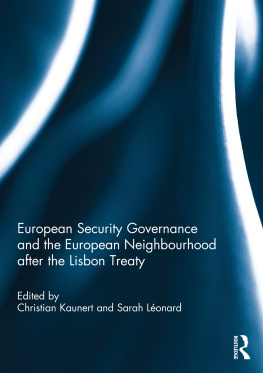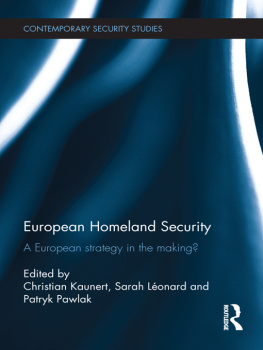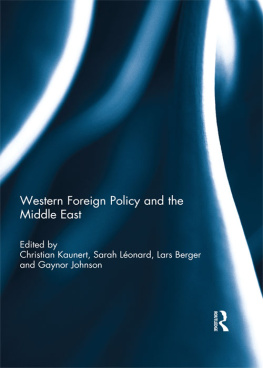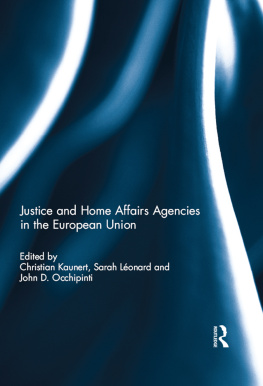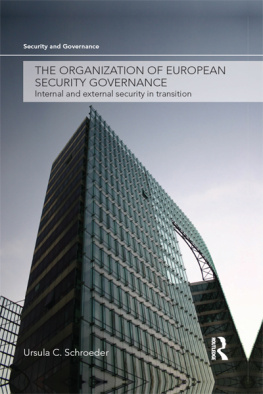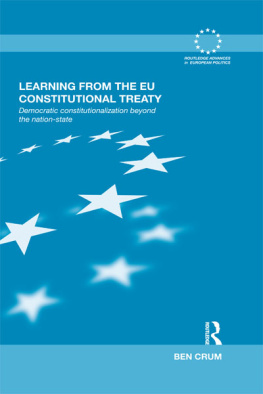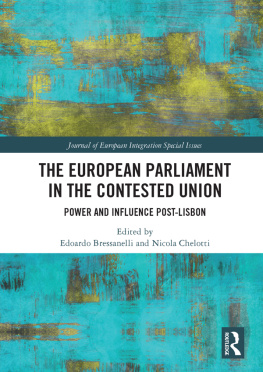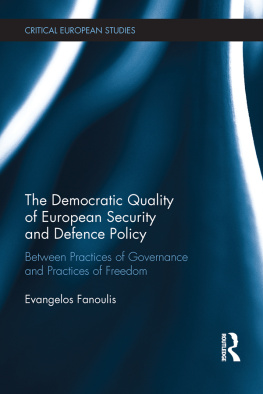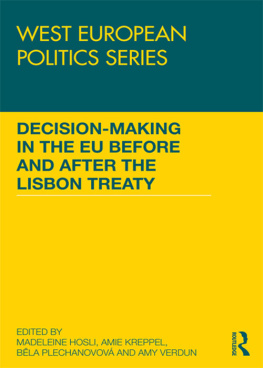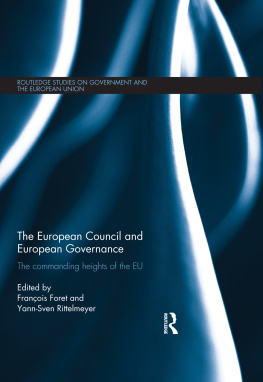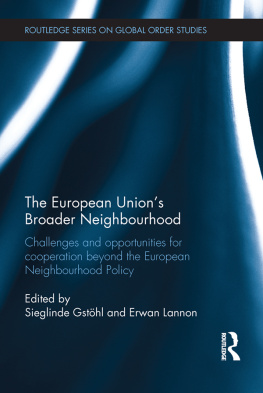European Security Governance and the European Neighbourhood after the Lisbon Treaty
The EU has often been considered to be a weak security actor. However, any assessment of the EUs role in international security is underpinned by a specific understanding of security. This book is based on a broad understanding of security. We consider that security concerns are increasingly triggered by challenges such as terrorism, climate change, mass migration flows, and many other non-traditional security issues. This book tries to capture these aspects of the EUs fast changing security policies following the entry into force of the Lisbon Treaty on 1 December 2009.
There are several common themes stemming from a combined reading of the chapters. Firstly, the EU has sought to simultaneously pursue its security objectives and spread its values, such as democracy, the rule of law, and human rights, by encouraging reforms in its neighbourhood. However, it is increasingly evident that there are tensions and contradictions between these two objectives, which can be illuminated and better understood by considering another strand of literature, with which there has been little engagement in EU studies to date, namely the literature on human security. This book is the first to analyze these hugely topical developments in European security after the Lisbon Treaty.
This book was previously published as a special issue of Perspectives on European Politics and Society .
Christian Kaunert is Senior Lecturer in EU Politics and International Relations at the University of Salford, UK and Marie Curie Senior Research Fellow at the European University Institute Florence, Italy.
Sarah Lonard is Lecturer in International Security at the University of Salford, UK and Marie Curie Research Fellow at Sciences Po, Paris, France.
European Security Governance and the European Neighbourhood after the Lisbon Treaty
Edited by
Christian Kaunert and Sarah Lonard
First published 2013
by Routledge
2 Park Square, Milton Park, Abingdon, Oxon, OX14 4RN
Simultaneously published in the USA and Canada
by Routledge
711 Third Avenue, New York, NY 10017
Routledge is an imprint of the Taylor & Francis Group, an informa business
2013 Taylor & Francis
This book is a reproduction of Perspectives on European Politics and Society , vol. 12, issue 4. The Publisher requests to those authors who may be citing this book to state, also, the bibliographical details of the special issue on which the book was based.
All rights reserved. No part of this book may be reprinted or reproduced or utilised in any form or by any electronic, mechanical, or other means, now known or hereafter invented, including photocopying and recording, or in any informatino storage or retrieval system, without permission in writing from the publishers.
Trademark notice : Product or corporate names may be trademarks or registered trademarks, and are used only for identification and explanation without intent to infringe.
British Library Cataloguing in Publication Data
A catalogue record for this book is available from the British Library
ISBN13: 978-0-415-62337-7
Typeset in Times New Roman
by Taylor & Francis Books
Publishers Note
The publisher would like to make readers aware that the chapters in this book may be referred to as articles as they are identical to the articles published in the special issue. The publisher accepts responsibility for any inconsistencies that may have arisen in the course of preparing this volume for print.
Contents
| Christian Kaunert & Sarah Lonard |
| Chantal Lavalle |
| Ariadna Ripoll Servent & Alex MacKenzie |
| Daniela Irrera |
| Patricia Bauer |
| Giselle Bosse |
| Cristian Nitoiu |
| Kamil Zwolski |
| Tom Casier |
Patricia Bauer , DAAD-Professor, Faculty of Economics and Political Science, Cairo University, Giza, Egypt.
Giselle Bosse , Assistant Professor, Political Science Department, Maastricht University, Maastricht, The Netherlands.
Tom Casier , Senior Lecturer in International Relations, University of Kent/Brussels, School of International Studies, Belgium.
Daniela Irrera , Assistant Professor of Political Science and IR, University of Catania Department of Political Studies, Catania, Italy.
Christian Kaunert , Senior Lecturer in EU Politics and International Relations, Centre for European Security, University of Salford, UK, and Marie Curie Senior Research Fellow, Robert Schuman Centre for Advanced Studies, European University Institute, Florence, Italy.
Chantal Lavalle , Visiting Fellow, Robert Schuman Centre For Advanced Studies, European University Institute, Florence, Italy.
Sarah Lonard , Lecturer in International Security, Centre for European Security, University of Salford, UK and Marie Curie Research Fellow, Centre for European Studies, Sciences Po, Paris, France.
Alex MacKenzie , School of Humanities, Languages and Social Sciences, University of Salford, UK.
Cristian Nitoiu , Department of Politics, History and International Relations, Loughborough University, Loughborough, UK.
Ariadna Ripoll Servent , Researcher at the Institute for European Integration Research, Austrian Academy of Sciences (OEAW), Vienna, Austria.
Kamil Zwolski , Lecturer in Politics, Department of Politics and Philosophy, Manchester Metropolitan University, Manchester, UK.
CHRISTIAN KAUNERT & SARAH LONARD
ABSTRACT The EU has been making strong inroads into the realm of security over the last few years. This is a remarkable development since security matters used to be the preserve of states. The EU has generally been considered a rather weak security actor. However, it is necessary to remember that any assessment of the EU's role in international security is always underpinned by a specific understanding of security, although this may often be left implicit. This special issue and, indeed, the European Security and Supranational Governance Conference and the whole EUSIM project - are based on a broad understanding of security. We consider that security concerns are increasingly triggered by challenges such as terrorism, climate change, mass migration flows and many other 'non-traditional' security issues. The articles presented in this special issue all testify to the breadth of the EU security agenda as they all try to capture some aspects of the EU's fast changing security policies following the entry into force of the Lisbon Treaty on 1 December 2009. There are several common themes stemming from a combined reading of the various articles gathered in this special issue. One of the themes that emerges particularly strongly from the various analyses is the existence of a complex relationship between values and security at the heart of several EU policies, particularly in relation to its neighbourhood. As emphasized by the various contributors to this special issue, it appears that the EU has sought to simultaneously pursue its security objectives and spread its values, such as democracy, rule of law and human rights, by encouraging reforms in its neighbourhood. However, it is increasingly evident that there are tensions, and perhaps even contradictions, between these two objectives. We argue in this introduction that it is only one of the challenges faced by the EU that can be illuminated and better understood by considering another strand of literature with which there has been little engagement in EU studies to date - the literature on human security.


